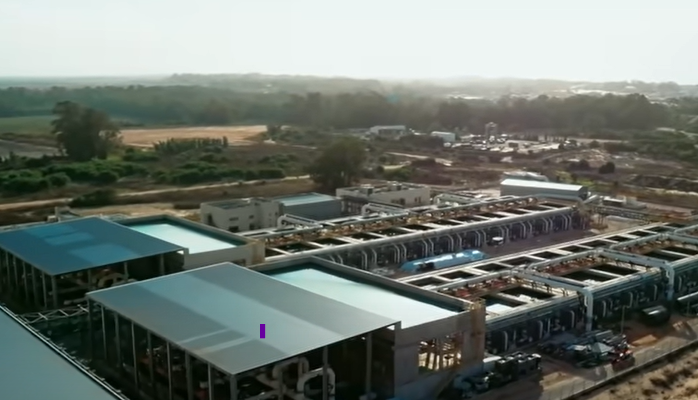Shamir’s drills can produce 160,000 gallons of water per hour, enough to irrigate 80% of Israel’s apple crops for an entire year.
By Shula Rosen
Israel and other countries in the Middle East face the perennial issue of securing enough water for agriculture and everyday use.
One project taps into a 5,000-year-old artesian aquifer that can supply massive amounts of water–sufficient to provide Israel’s water needs.
The Shamir project is one of the world’s deepest drilling operations, named for the Kibbutz it is located above.
The Shamir Project, sponsored by the Jewish National Fund and the Golan and Galilee Water Associations, answers the pressing water supply problem, particularly in an era of global climate change and increased droughts.
It consists of 3 drills 1.5 kilometers deep extending through Golan Heights into the Hula Valley.
Shamir taps into 2.5 billion cubic meters of water, over half the volume of the Kinneret (Sea of Galilee), Israel’s largest water source.
Using intense pressure, the drills can produce 160,000 gallons of water per hour, enough to irrigate 80% of Israel’s apple crops for an entire year.
The Shamir Project has already proven effective in remedying drought situations and prevented 150 million shekels ($38 million) in crop damage in 2014, one of the driest winters on record.
Since this water source has been buried under basalt and limestone for 5,000 years, it is not ready for immediate use, even for agriculture.
When the water is extracted, it is boiling–87 Celsius or 188 Fahrenheit, and it also contains chemicals and bacteria that need to be removed or neutralized before the water can be used.
In addition, pumping the water through pipes can be difficult because it is highly corrosive.
To address these issues, the water is sent to an open reservoir close to Kibbutz Shamir, where it can begin the aeration process to cool and purify it.
Once the water has been treated, it can be piped to vineyards in the Golan Heights and sent down to irrigate fields in the Hula Valley.
The Shamir Project, sponsored by the Jewish National Fund and the Golan and Galilee Water Associations, answers the pressing water supply problem, particularly in an era of global climate change and increased droughts.
